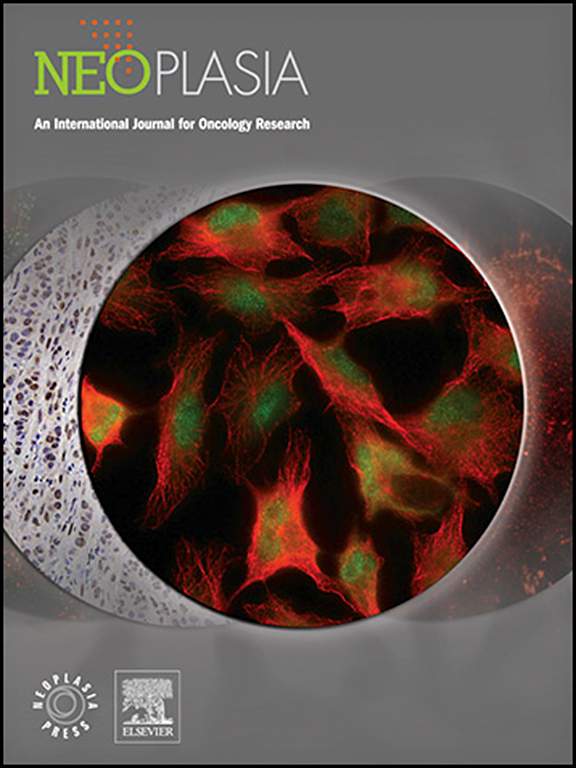Motion based ex vivo (MOTEX) culture of breast tumor slices sustains microenvironment composition
IF 7.7
2区 医学
Q1 Biochemistry, Genetics and Molecular Biology
引用次数: 0
Abstract
Personalized medicine for breast cancer (BrC) requires predictive biomarkers to select the optimal therapeutic option for each individual patient. Personalization of chemotherapy or immunotherapy responses is particularly challenging, as molecular markers do not appear to be sufficiently predictive for therapy response. Functional assays for therapy selection may be the solution for this dilemma. An interesting approach is ex vivo cultures of precision cut tumor slices, such as the MOtion-based Tissue EX vivo (MOTEX) method that we described previously. This culture method has the advantage that it carries all cell types in the tumor, including various immune cell populations. We here show, that macrophages, B-cells and T-cell populations are maintained in the MOTEX culture for several days without apparent loss of viability. Even treatment with the microtubule poison paclitaxel did not reduce immune cell abundance or viability significantly. Anthracycline-based chemotherapy, however, did affect immune cell composition, as expected based on its cytotoxic properties. Therefore, we conclude that MOTEX culture of BrC tissue slices can be used to investigate effect of treatments that involve the immune system. This opens perspectives to develop predictive assays for immune checkpoint inhibitor treatment and other therapeutic interventions that require immune components in the assay system.
基于运动的体外培养(MOTEX)乳房肿瘤切片维持微环境组成
针对乳腺癌的个性化医疗(BrC)需要预测性的生物标志物来为每个患者选择最佳的治疗方案。化疗或免疫治疗反应的个性化尤其具有挑战性,因为分子标记似乎不能充分预测治疗反应。用于治疗选择的功能分析可能是解决这一困境的方法。一种有趣的方法是精确切割肿瘤切片的离体培养,例如我们前面描述的基于运动的组织离体(MOTEX)方法。这种培养方法的优点是它携带肿瘤中的所有细胞类型,包括各种免疫细胞群。我们在这里表明,巨噬细胞,b细胞和t细胞群在MOTEX培养中维持数天而没有明显丧失活力。即使用微管毒性紫杉醇治疗也没有显著降低免疫细胞的丰度或活力。然而,基于蒽环类药物的化疗确实影响免疫细胞组成,正如基于其细胞毒性所预期的那样。因此,我们得出结论,MOTEX培养BrC组织切片可以用于研究涉及免疫系统的治疗效果。这为开发免疫检查点抑制剂治疗和其他需要检测系统中免疫成分的治疗干预的预测分析开辟了前景。
本文章由计算机程序翻译,如有差异,请以英文原文为准。
求助全文
约1分钟内获得全文
求助全文
来源期刊

Neoplasia
医学-肿瘤学
CiteScore
9.20
自引率
2.10%
发文量
82
审稿时长
26 days
期刊介绍:
Neoplasia publishes the results of novel investigations in all areas of oncology research. The title Neoplasia was chosen to convey the journal’s breadth, which encompasses the traditional disciplines of cancer research as well as emerging fields and interdisciplinary investigations. Neoplasia is interested in studies describing new molecular and genetic findings relating to the neoplastic phenotype and in laboratory and clinical studies demonstrating creative applications of advances in the basic sciences to risk assessment, prognostic indications, detection, diagnosis, and treatment. In addition to regular Research Reports, Neoplasia also publishes Reviews and Meeting Reports. Neoplasia is committed to ensuring a thorough, fair, and rapid review and publication schedule to further its mission of serving both the scientific and clinical communities by disseminating important data and ideas in cancer research.
 求助内容:
求助内容: 应助结果提醒方式:
应助结果提醒方式:


